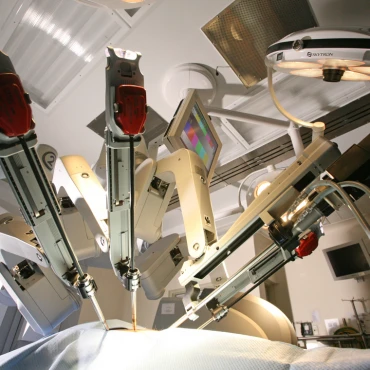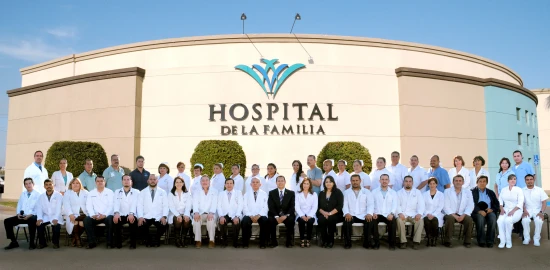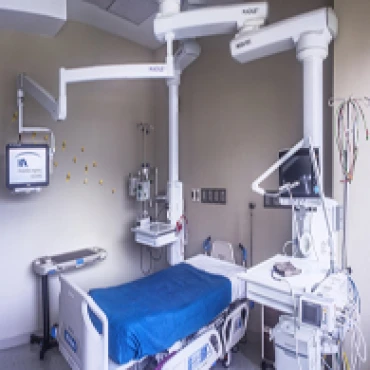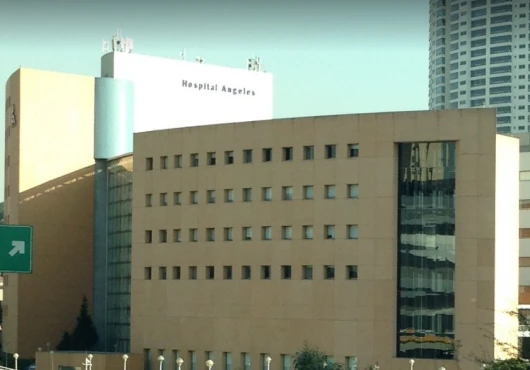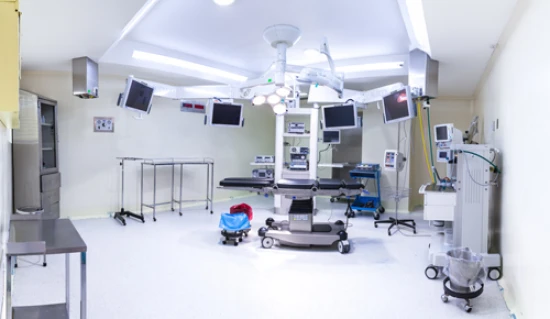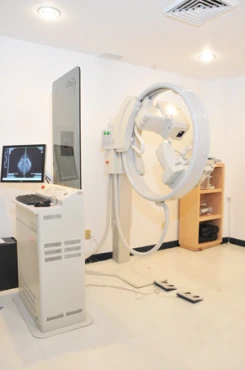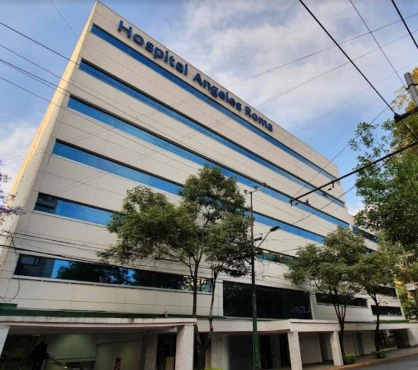End-stage heart failure treatment in 1 Cardiac surgery and Thoracic surgery clinic in San Pedro Garza Garcia
1 clinic specializing in Cardiac surgery and Thoracic surgery providing treatment of
End-stage heart failure
End-stage heart failure is the advanced and irreversible stage of heart failure where the heart's pumping function is severely impaired, leading to debilitating symptoms and necessitating advanced medical interventions or heart transplantation.
Read more...
disease in San Pedro Garza Garcia.
Besides this clinic there are 36 Cardiac surgery, Thoracic surgery clinics in Mexico.
Such diseases are treated by Hospital Zambrano Hellion: Coronary artery disease (CAD), Dilated cardiomyopathy, End-stage heart failure, Heart failure, Hypertrophic cardiomyopathy (HCM), and others.
-
Heart transplantation
≈ $41,961
-
Ventricular assist device (LVAD, RVAD, BVAD) implantation
by request
-
Thoracoplasty including sternoplasty
≈ $5,711
-
Diagnostic thoracoscopy
≈ $2,369
-
Dual chamber pacemaker insertion
≈ $7,805
-
Coronary artery bypass graft (CABG)
≈ $25,360
-
Repair of diaphragmatic hernia
≈ $1,509
-
Off-pump coronary artery bypass surgery
≈ $19,035
-
Surgery for lung cancer
≈ $5,354

Nearby clinics in Mexico
Perhaps you should consider the following clinics we have found nearby basing on your Location, Disease filters applied.
-
Heart transplantation
≈ $42,559
-
Ventricular assist device (LVAD, RVAD, BVAD) implantation
by request
-
Thoracoplasty including sternoplasty
≈ $5,792
-
Video-assisted thoracic surgery (VATS)
≈ $12,589
-
Diagnostic thoracoscopy
≈ $2,402
-
Dual chamber pacemaker insertion
≈ $7,916
-
Coronary artery bypass graft (CABG)
≈ $25,721
-
Repair of diaphragmatic hernia
≈ $1,530
-
Off-pump coronary artery bypass surgery
≈ $19,307

-
Ventricular assist device (LVAD, RVAD, BVAD) implantation
by request
-
Thoracoplasty including sternoplasty
≈ $5,792
-
Diagnostic thoracoscopy
≈ $2,402
-
Dual chamber pacemaker insertion
≈ $7,916
-
Coronary artery bypass graft (CABG)
≈ $25,721
-
Repair of diaphragmatic hernia
≈ $1,530
-
Heart valve replacement
≈ $2,813
-
Heart valve repair
≈ $23,369
-
Aortic valve replacement (AVR)
≈ $25,743

-
Heart transplantation
≈ $42,559
-
Ventricular assist device (LVAD, RVAD, BVAD) implantation
by request
-
Dual chamber pacemaker insertion
≈ $7,916
-
Coronary artery bypass graft (CABG)
≈ $25,721
-
Heart valve replacement
≈ $2,813
-
Heart valve repair
≈ $23,369
-
Aortic valve replacement (AVR)
≈ $25,743
-
Mitral valve replacement (MVR)
≈ $20,796
-
Transcatheter aortic valve replacement (TAVR)
≈ $37,412
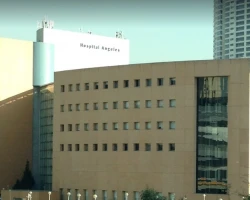
-
Ventricular assist device (LVAD, RVAD, BVAD) implantation
by request
-
Thoracoplasty including sternoplasty
≈ $5,792
-
Diagnostic thoracoscopy
≈ $2,402
-
Dual chamber pacemaker insertion
≈ $7,916
-
Coronary artery bypass graft (CABG)
≈ $25,721
-
Repair of diaphragmatic hernia
≈ $1,530
-
Heart valve replacement
≈ $2,813
-
Heart valve repair
≈ $23,369
-
Aortic valve replacement (AVR)
≈ $25,743

-
Ventricular assist device (LVAD, RVAD, BVAD) implantation
by request
-
Thoracoplasty including sternoplasty
≈ $5,792
-
Diagnostic thoracoscopy
≈ $2,402
-
Dual chamber pacemaker insertion
≈ $7,916
-
Coronary artery bypass graft (CABG)
≈ $25,721
-
Repair of diaphragmatic hernia
≈ $1,530
-
Heart valve replacement
≈ $2,813
-
Heart valve repair
≈ $23,369
-
Aortic valve replacement (AVR)
≈ $25,743

-
Ventricular assist device (LVAD, RVAD, BVAD) implantation
by request
-
Thoracoplasty including sternoplasty
≈ $5,792
-
Diagnostic thoracoscopy
≈ $2,402
-
Dual chamber pacemaker insertion
≈ $7,916
-
Coronary artery bypass graft (CABG)
≈ $25,721
-
Repair of diaphragmatic hernia
≈ $1,530
-
Off-pump coronary artery bypass surgery
≈ $19,307
-
Permanent pacemaker implantation
≈ $8,109
-
Thoracentesis
≈ $596

Countries with the highest number of clinics treating the diseases:
End-stage heart failure:
Related procedures:
Quick navigation
- Balloon angioplasty and stenting of aorta coarctation ≈ $9,833
- Bronchoplastic surgery ≈ $7,173
- Cardiac catheterization ≈ $2,427
- Chest wall deformity correction ≈ $5,921
- Coil embolization of intracardiac shunts and fistulas ≈ $4,555
- Esophageal dilation ≈ $969
- Esophageal stenting ≈ $2,536
- Esophagocoloplasty ≈ $3,706
- Heart tumor surgery ≈ $14,891
- Intraaortic balloon pump (IABP) procedure ≈ $2,714
- Left atrial appendage occlusion ≈ $9,913
- Lung volume reduction surgery (LVRS) by request
- Mediastinal cancer surgery ≈ $5,859
- NobleStitch™ PFO closure procedure by request
- Open chest surgery ≈ $9,554
- Open-heart intracardiac foreign body removal ≈ $17,791
- Patent ductus arteriosus (PDA) open heart surgery in adults ≈ $5,974
- Percutaneous ASD closure ≈ $9,994
- Percutaneous closure of ventricular septal defect (VSD) ≈ $10,311
- Rashkind procedure ≈ $8,347
- Acute congestive heart failure
- Aortic valve insufficiency
- Aortic valve stenosis
- Arteriosystemic venous (AV) shunts
- Atrial fibrillation (AFib)
- Benign lung tumor
- Chest wall deformity
- Chronic obstructive pulmonary disease (COPD)
- Chronic pulmonary aspergillosis
- Coarctation of the aorta (CoA)
- Coronary-pulmonary arterial fistula
- Cystic echinococcosis
- Cystic lung disease
- Dysphagia
- Emphysema
- Esophageal stricture
- Extragonadal germ cell tumours (EGGCT)
- Jeune's syndrome
- Left-sided heart failure
- Low cardiac output syndrome (LCOS)



